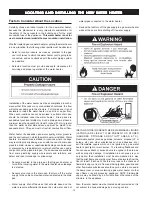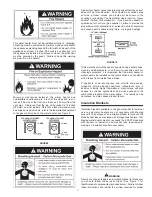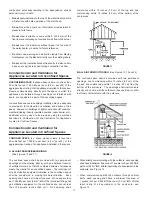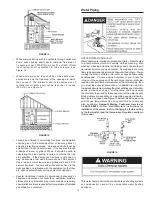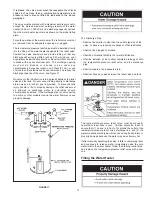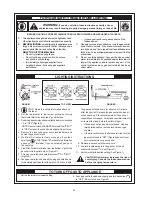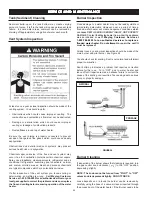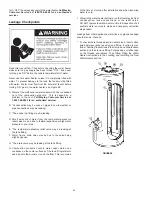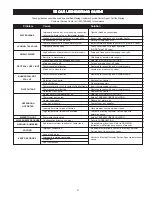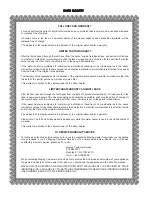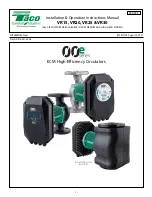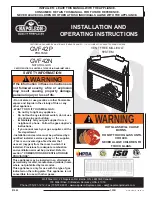
24
•
Remove the washer and put the new one in place.
•
Screw the handle and cap assembly back into the drain
valve and retighten using a wrench. DO NOT OVER
TIGHTEN.
•
Follow instructions in the
Filling The Water Heater
section.
•
Check for leaks.
•
Follow the lighting instructions in the
Lighting
section to
restart the water heater.
FIGURE 26.
Service
Before calling for repair service, read the
Start Up Conditions
and
Operational Conditions
found in the
Troubleshooting Guide
of this manual.
If a condition persists or you are uncertain about the operation
of the water heater, let the Maytag Customer Service check it
out.
Call Maytag Customer Service at 1-800-788-8899 for an
authorized servicer.
•
Turn the gas control knob to the “OFF” position.
•
CLOSE the cold water inlet valve to the water heater.
•
OPEN a nearby hot water faucet and leave open to allow for
draining.
•
Connect a hose to the drain valve and terminate to an
adequate drain.
•
OPEN the water heater drain valve to allow for tank draining.
NOTE: If the water heater is going to be shut down and
drained for an extended period, the drain valve should be
left open with hose connected allowing water to terminate
to an adequate drain.
•
CLOSE the drain valve.
•
Follow instructions in the
Filling The Water heater
section.
•
Follow the lighting instructions in the
Lighting
section to
restart the water heater.
Drain Valve Washer Replacement
(for selected models with plastic drain valves).
(See Figure 26)
NOTE: For ordering replacement washers, refer to the
“Repair Parts List” section of this manual.
•
Turn “OFF” gas supply to water heater.
•
Follow “Draining” instructions.
•
Turning counter clockwise (
), remove the hex cap below
the screw handle.
TROUBLESHOOTING
TROUBLESHOOTING
TROUBLESHOOTING
TROUBLESHOOTING
TROUBLESHOOTING
Start Up Conditions
Draft Hood Operation
Check draft hood operation by performing a worst case
depressurization of the building. With all doors and windows
closed, and with all air handling equipment and exhaust fans
operating, such as furnaces, clothes dryers, range hoods and
bathroom fans, a match flame should still be drawn into the
draft hood of the water heater with its burner firing. If the flame
is not drawn toward the draft hood, shut off the water heater
and make necessary air supply changes to correct.
Condensation
Whenever the water heater is filled with cold water, some
condensate will form while the burner is on. A water heater
may appear to be leaking when in fact the water is condensation.
This usually happens when:
•
A new water heater is filled with cold water for the first time.
•
Burning gas produces water vapor in water heaters,
particularly high efficiency models where flue temperatures
are lower.
•
Large amounts of hot water are used in a short time and
the refill water in the tank is very cold.
Moisture from the products of combustion condense on the
cooler tank surfaces and form drops of water which may fall
onto the burner or other hot surfaces to produce a “sizzling” or
“frying” noise.
Excessive condensation can cause pilot outage due to water
running down the flue tube onto the main burner and putting
out the pilot.
Because of the suddenness and amount of water,
condensation water may be diagnosed as a “tank leak”. After
the water in the tank warms up (about 1-2 hours), the condition
should disappear.
Do not assume the water heater is leaking until there has
been enough time for the water in the tank to warm up.
An undersized water heater will cause more condensation.
The water heater must be sized properly to meet the family’s
demands for hot water including dishwashers, washing
machines and shower heads.
Excessive condensation may be noticed during the winter and
early spring months when incoming water temperatures are
at their lowest.

